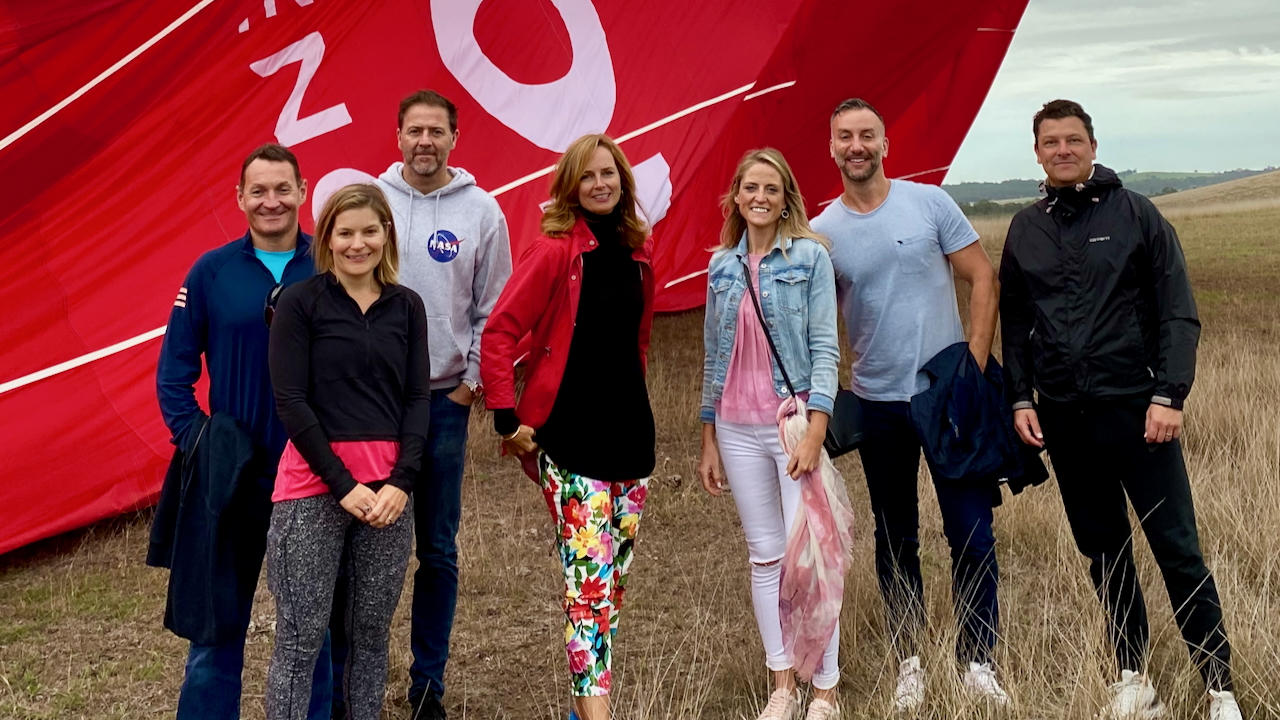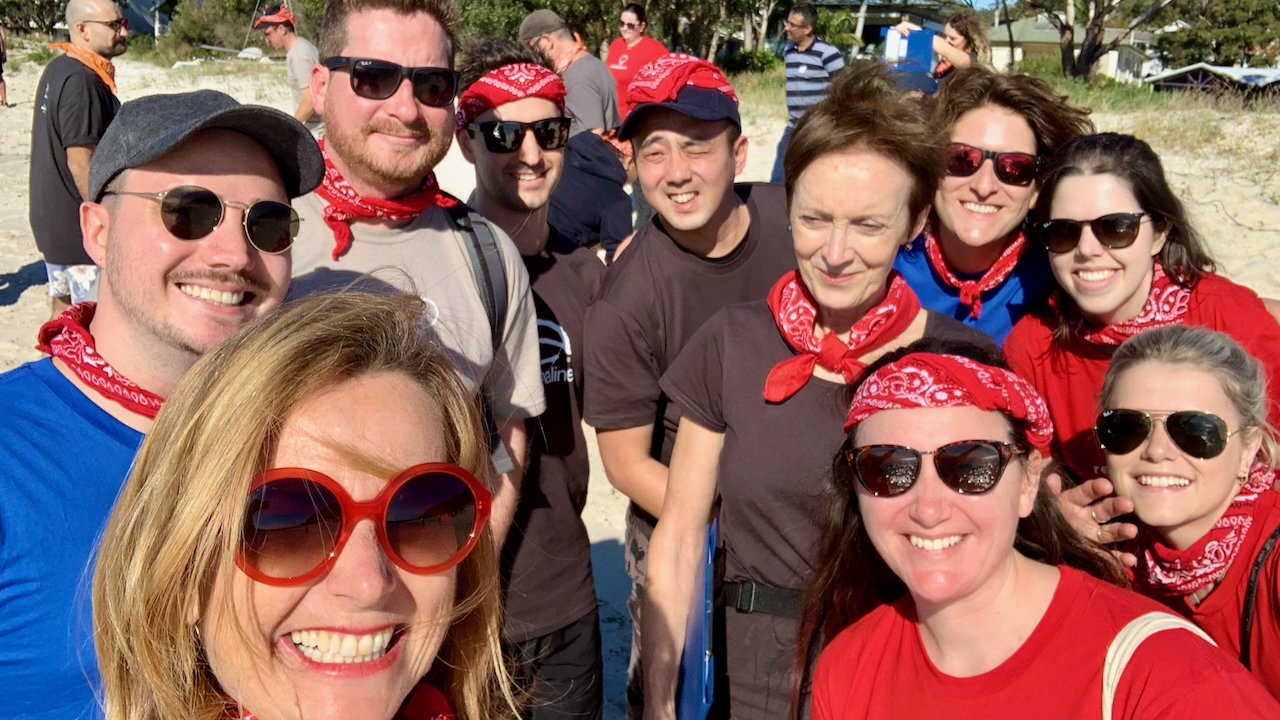I want you to think about the term "Corporate Social Responsibility" or "CSR" for a moment. What image does it conjure up in your mind?
For many, it's a picture from another era. It’s the oversized novelty cheque being presented at a charity golf day. It’s the one-off team fun run in branded t-shirts. It’s the glossy, self-congratulatory page tucked away at the back of a corporate annual report, filled with stock photos of smiling children and leafy green trees.
For decades, CSR was treated as a corporate indulgence, a peripheral activity, a kind of "goodness tax" that a successful company paid to atone for its sins of relentless profit-seeking. It was seen as a cost centre, an obligation, a box to be ticked. It was what you gave away after you had made your money.
I am here to tell you that this view of CSR is not just dangerously outdated; it is a profound misunderstanding of the most powerful commercial forces shaping our world today. If that is still your company's approach to social responsibility, you are not just missing an opportunity; you are actively steering your business towards irrelevance.
The new generation of leaders, employees, and customers have torn up that old playbook. They have ushered in a new era, one where the questions "What do you do?" and "How much profit do you make?" are no longer enough. The new, defining question is: "What is your impact?"
In this new landscape, Corporate Social Responsibility is not a cost centre; it is one of the most powerful value drivers you can build. It is not about what you give away; it is about how you make your money in the first place. It is the very soul of your strategy.
This isn't a theory I learned in business school. It is a fundamental truth I have lived and breathed for my entire entrepreneurial career. It is the very foundation upon which I built RedBalloon and co-founded Big Red Group. So today, I want to take you on a journey to redefine CSR. We will explore its true meaning, uncover its tangible, hard-nosed business benefits, and lay out a practical framework for building a business that is not just profitable, but powerful.

My RedBalloon Awakening: A Story of Purpose-Driven Profit
To truly understand my philosophy on this, I need to take you back to 2001. When I started RedBalloon from the front room of my house, I didn't have a "CSR strategy." I had a personal conviction. I was a mother to two young children, looking at a world that felt like it was drowning in stuff. I saw the stress of obligatory gift-giving, the environmental waste of unwanted presents, and the missed opportunities for genuine human connection.
The idea for RedBalloon was born from this personal pain point. It was built on a simple, yet at the time, radical belief: experiences are more valuable than possessions.
This became our purpose. Our mission was not just "to sell gift vouchers online." It was "to change the way Australians give gifts, forever." We wanted to shift our culture from accumulating things to creating cherished memories.
Looking back, I realise that our entire business model was our CSR strategy, woven into our very DNA from day one.
- Our "social impact" was baked into our supply chain. We were a platform that provided a national marketplace for thousands of small, family-run, often regional Australian businesses—the hot air balloon pilots, the vineyard owners, the sailing instructors. Their success was our success. We weren't just a business; we were a small business incubator.
- Our "environmental impact" was inherent in our product. We were offering an alternative to mass-produced, landfill-bound consumer goods. We were selling memories, not more stuff.
This wasn't a program we tacked on the side; it was the business. And the commercial results were a direct consequence of this purpose-led approach. Our story of supporting small Aussie businesses gave us a powerful narrative that the media loved, earning us priceless PR. It attracted a team of passionate "memory-makers" who were deeply connected to our mission, which is the key to keeping good people. And it built a tribe of loyal customers who felt good about their purchases, knowing they were not just buying a gift, but supporting a local enterprise and a better way of giving.
This experience taught me the most important lesson of my career: A business that is genuinely built on a foundation of purpose doesn't need a separate "CSR department." Its daily operations are the living, breathing embodiment of its social responsibility. And this is the source of its greatest strength.

The Modern Business Case: The Tangible ROI of Doing Good
Let's be very clear. I am a passionate capitalist. I believe in the power of business to create wealth and opportunity. I am advocating for a deep commitment to CSR not just because it's the "right" thing to do, but because it is the smartest thing to do. The benefits are not soft and fluffy; they are tangible, measurable, and they hit the bottom line.
1. The Talent Magnet: Winning the War for Your Best People
In today's economy, the war for talent is the most critical battle you will fight. And the rules of engagement have changed. The best and brightest, particularly from the Millennial and Gen Z generations, are no longer just looking for a competitive salary and a corner office. They are looking for meaningful work.
A study by Cone Communications found that 64% of Millennials won't take a job if a company doesn't have strong CSR values. They want to work for organisations that are making a positive impact on the world. A clear, authentic, and lived CSR strategy is your ultimate recruitment and retention tool. It allows you to compete for A-player talent not just on salary, but on soul. It builds a culture where your team is not just motivated by their pay cheque, but by their contribution to a shared mission. This is the very essence of a business with purpose.
2. The Customer Loyalty Engine: Building an Unbreakable Tribe
Today's consumer is more conscious and more connected than ever before. They are voting with their wallets, and they are choosing to support brands that align with their own values. A Nielsen study showed that 66% of global consumers are willing to pay more for products from sustainable brands.
A strong, authentic CSR identity is a powerful differentiator in a crowded market. It allows you to move beyond a purely transactional relationship with your customers. You are not just selling them a product; you are inviting them to be part of a movement. This builds a deep, emotional connection that creates incredible brand loyalty, reduces price sensitivity, and turns your customers into your most passionate, vocal advocates.
3. The Innovation Catalyst: Driving Creativity and Efficiency
A genuine commitment to CSR forces you to ask tougher, more interesting questions.
- "How can we redesign our packaging to eliminate all single-use plastics?"
- "How can we re-engineer our supply chain to be more ethical and transparent?"
- "How can we create a product that serves an overlooked or underserved community?"
These challenges are a powerful catalyst for innovation. They force your team to think outside the box, to find more efficient processes, and to develop new products and services that open up entirely new markets. When I joined Leaders for Climate Action, it wasn't just an ethical commitment; it was a strategic one. It forced us to look at every aspect of our business through a new lens, and in doing so, we uncovered new efficiencies and innovations.
4. The Risk Mitigation Shield: Building a Bank of Goodwill
In our hyper-transparent, social-media-driven world, a company's reputation is its most valuable and most fragile asset. A single misstep—an environmental incident, a supply chain scandal, a tone-deaf marketing campaign—can destroy decades of brand value overnight.
A strong, long-term, and authentic commitment to CSR builds what I call a "bank of goodwill." It demonstrates to your customers, your team, and your community that your company has a character and a conscience. When (not if) a crisis hits, this bank of goodwill can be the very thing that sees you through. The public is far more likely to forgive an honest mistake from a company with a proven track record of doing the right thing.
Furthermore, a proactive CSR strategy helps you get ahead of future regulations. By voluntarily adopting higher standards for environmental impact, data privacy, or supply chain ethics, you de-risk your business from future government interventions. This is the kind of long-term strategic thinking that is the hallmark of my work on corporate boards.
5. The Partnership Multiplier: Attracting Like-Minded Allies
In business, you are known by the company you keep. A clear and public commitment to social and environmental responsibility makes you a magnet for other like-minded organisations. This opens doors to powerful small business partnerships with other value-aligned brands, non-profits, and even government bodies. These collaborations can be incredibly powerful, creating a multiplier effect that amplifies the impact and the commercial success of both partners.
Beyond the Cheque: A Practical Framework for Authentic CSR

So, how do you move from understanding the benefits to actually implementing an authentic and impactful CSR strategy? It is a process of conscious, strategic design.
Step 1: Start with Your "Why" - Align CSR with Your Core Purpose
The most powerful and sustainable CSR initiatives are not random acts of kindness. They must be an authentic and logical extension of your company's core mission.
- If your company's purpose is to empower small businesses (like RedBalloon's was), your CSR should focus on mentorship, pro-bono support, or creating platforms for those businesses to shine.
- If you are a technology company, your CSR could be about providing digital literacy training in underserved communities.
- If you are a food company, it could be about tackling food waste and local hunger.
When your CSR is aligned with your purpose, it stops being a "side project" and becomes a powerful, authentic expression of who you are as a business.
Step 2: Look Inward First - Get Your Own House in Order
Before you go out and try to save the world, you must first ensure that your own business is a force for good. True CSR starts at home.
- Your People: How do you treat your own team? Are you paying them fairly? Are you investing in their development? Are you creating a diverse, inclusive, and psychologically safe workplace? A great culture is the foundation of all social responsibility.
- Your Operations: What is the environmental footprint of your business? What are you doing to reduce waste, conserve energy, and make sustainable choices in your daily operations?
- Your Supply Chain: Who are your suppliers? Are you holding them to the same ethical and environmental standards that you hold for yourself?
Your internal practices are the true measure of your commitment.
Step 3: The Three Levels of Impact - A Simple Framework
Once your house is in order, you can think about your external impact. I like to break it down into three simple levels:
- Your Operations: This is about integrating "good" into your core business model, just as we did at RedBalloon.
- Your Community: This is about how you engage with your local, geographic community. It could be through team volunteering days, sourcing from local suppliers, or supporting local community events.
- Your Philanthropy: This is the more traditional "giving back" piece. It could involve donating a percentage of your profits, offering your services pro-bono to a charity that aligns with your mission, or creating a corporate foundation. This is a powerful and important part of the puzzle, but it should be the final piece, built on a foundation of responsible operations and community engagement.
Step 4: Measure What Matters and Tell Your Story with Humility
You must be able to measure your impact. Track your volunteer hours, your carbon reduction, your funds raised, your community partnerships. This turns your good intentions into tangible results.
And then, you must tell that story. Not as a boastful, self-congratulatory press release, but with humility and authenticity. Frame it as a journey you are on, and invite your customers and your community to join you. Great CSR storytelling is not about saying, "Look how good we are." It's about saying, "Look at the good we can do, together."
The New Definition of a "Successful" Business

The world is at an inflection point. The old, narrow definition of corporate success, measured only by financial profit, is being replaced by a new, more holistic, and more human definition.
The most successful and enduring businesses of the future will be those that create value for all their stakeholders—their shareholders, their employees, their customers, their suppliers, and the broader community. They will be the businesses that understand that the profit they make is a direct result of the purpose they serve.
This is the new game. This is the new challenge. This is the new, exciting reality of Corporate Social Responsibility. It is not just a department; it is a philosophy. It is not a tax on your profit; it is the very engine of it.
What is the deeper purpose at the heart of your own business? And what is one small step you can take this week to bring that purpose to life in a more tangible way?
Frequently Asked Questions (FAQs) on Corporate Social Responsibility Benefits
What is Corporate Social Responsibility (CSR)?
Corporate Social Responsibility is a business model where a company makes a conscious effort to operate in an ethical and sustainable manner, taking responsibility for its impact on society and the environment. It's about integrating social and environmental concerns into the core business strategy, moving beyond profit as the sole objective.
What are the main benefits of a strong CSR program for a business?
A strong CSR program delivers numerous business benefits, including an enhanced brand reputation, increased customer loyalty, and improved employee engagement and retention. It can also lead to greater innovation as companies find new, sustainable ways to operate, and ultimately, a stronger bottom line.
How does CSR help with attracting and retaining top talent?
Modern employees, particularly younger generations, are actively seeking employers whose values align with their own. A company with a genuine commitment to CSR is a magnet for top talent. It fosters a sense of purpose and pride among staff, which significantly boosts morale, engagement, and long-term employee retention.
Can a company's CSR initiatives influence customer loyalty?
Absolutely. Today's consumers are more informed and conscientious than ever before. They are increasingly choosing to spend their money with brands that demonstrate a real commitment to positive social and environmental impact. A strong CSR reputation builds trust and creates a deep, emotional connection with customers that transcends the product or service itself.
How can a small business get started with Corporate Social Responsibility?
A small business can start by aligning its CSR efforts with its core values and local community. Simple, impactful steps include volunteering as a team for a local cause, implementing sustainable office practices to reduce environmental footprint, or partnering with a local charity. The key is to be authentic and consistent, no matter the scale of the initiative.





